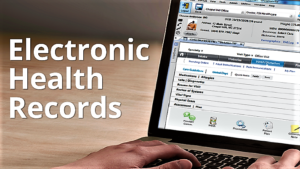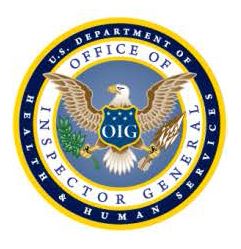- Integrating medication management with its EHR helped one hospital beat CMS expectations (healthcareitnews.com)
King's Daughters Medical Center...found it challenging to provide an accurate, verifiable home medication record for its providers to trust as they made important decisions about existing medications both during an inpatient visit and after discharge...King's Daughters now uses external medication history from pharmacy fill data as well as insurance claims data, provided by vendor DrFirst, to complement verification and push the information to the providers...While it is not intended as a replacement for the patient/family interview, its integration into the electronic health record greatly augments the conversation and can prompt a patient to include easily forgotten information...This reduces the risk of prescription loss and makes the process more efficient for the patient while ensuring the health record is updated in advance of future visits...King's Daughters is required to report its performance on both medication reconciliation (with a threshold goal of 50 percent) and e-prescription (10 percent) to the Centers for Medicare and Medicaid Services...most recent reporting period, Q4 2017, our stats were 77 percent and 52 percent, respectively...integrating medication management tech into the EHR also helped King’s Daughters more effectively retrieve historical data and deliver that information to providers to facilitate new prescriptions in a trustworthy manner that both reduces errors and the abuse of controlled substances...
- Walgreens goes to Epic for EHR (healthcareitnews.com)
Work to begin in early 2016…Walgreens is poised to roll out Epic EHRs (Care Everywhere) in its more than 400 healthcare clinics across the country…The Epic platform will replace Walgreens' own proprietary EHR…The goal…is to...enable more seamless communication with health systems and local providers, and gives us enhanced capabilities to deliver better health outcomes through greater care coordination and interoperability…our clinics play an increasingly important role in healthcare, supporting the healthcare system, provider practices and patients' medical homes, care coordination can be critical. This will benefit our patients, clinic providers and partners, and serves as an instrumental part of our strategic growth plan…
- AMA docs fed up with EHR woes (healthcareitnews.com)
When it comes to electric health records (EHR), many docs are more frustrated than ever. "They have so much potential to improve healthcare, improve quality, improve our efficiency, improve patient engagement, and yet that's not the current state of reality,"… "Our experience as physicians is often falling far short of the promise…"
- Most U.S. Hospitals Use EHRs, CPOE Systems (drugtopics.modernmedicine.com)
The use of health IT has exploded in the last decade, and that means better health care...Electronic health records, computerized prescriber-order-entry systems, and barcode-assisted medication administration systems have now become almost universal in hospitals nationwide...According to the “ASHP National Survey of Pharmacy Practice in Hospital Settings: Prescribing and Transcribing — 2016,” nearly 100% of hospitals across the United States have adopted these technologies...Survey results reveal that the use of health IT by hospitals has led to a rapid increase in “paperless care.”... ASHP CEO, Paul W. Abramowitz, PharmD, said in a statement that, in addition to improving medication safety, the increased use of information technology shows great potential for pharmacists to spend more time providing comprehensive medication therapy management in and across all settings of patient care. “These positive findings move us closer to achieving ASHP’s vision that medication use will be optimal, safe, and effective for all people all of the time.” Abramowitz said.
- Transitional Chaos or Enduring Harm? The EHR and the Disruption of Medicine (nejm.org)
…complaints might be dismissed as growing pains, born of resistance to change. But transitional chaos must be distinguished from enduring harm…the EHR's limitations and why they've been largely ignored, one key barrier is that physicians who voice reservations are labeled "technophobic, resistant, and uncooperative." But in fact…most physicians recognize the potential of EHRs and appreciate such features as the ability to view data remotely. Nevertheless, the researchers found remarkable EHR-induced distress. They conclude, "No other industry, to our knowledge, has been under a universal mandate to adopt a new technology before its effects are fully understood, and before the technology has reached a level of usability that is acceptable to its core users."...What this surgeon and the rest of us need are patient records that communicate meaning and foster understanding of the particular patient in question. The blanks on our screens can be filled with words, but the process of understanding cannot be auto-populated. Perhaps life without the EHR will soon be unimaginable. But the technology will support and improve medical care only if it evolves in ways that help, rather than hinder, us in synthesizing, analyzing, thinking critically, and telling the stories of our patients.
- New CMS rules may spur EHR uptake (healthcareitnews.com)
Long-term care's digital moment?...Proposed new rules for long-term care released…could spur an uptake of electronic health records by nursing homes across the country…
- 5 ways OIG checks hospital safety (healthcareitnews.com)
New this year is quality reporting data…The Office of Inspector General in the Department of Health and Human Services is charged with overseeing the agency's programs to make sure they function efficiently and safely…OIG recently released its work plan for 2016…Here, among the vast responsibilities assigned to the office are five items OIG will check to ensure hospitals provide quality care and maintain safety:
- CMS validation of hospital-submitted quality reporting data
- Hospitals' contingency plans for protecting data in the EHR
- Hospital preparedness and response to high-risk infectious diseases
- Long-term-care hospitals – adverse events in post-acute care for Medicare beneficiaries
- Inpatient rehabilitation facilities – adverse events for Medicare beneficiaries
- EHRs can increase docs’ medical malpractice liability (fierceemr.com)
Electronic health records can increase a provider's malpractice exposure,… EHRs initially were envisioned to reduce medical errors, but surmises that hasn't yet occurred…EHRs are causing or contributing to malpractice problems… found to create new, unanticipated legal problems…are changing the nature of medical malpractice lawsuits.
- Computer glitches and design flaws, such as a restrictive drop down menu, which can cause medical errors
- The "transparency" of EHRs themselves, which makes it harder to hide mistakes or sloppy work habits
- The increased documentation requirements and resulting desire to use templates and other shortcuts, which can lead to discrepancies in the EHR
- The inability of EHRs to catch some errors, such as dosage mistakes





